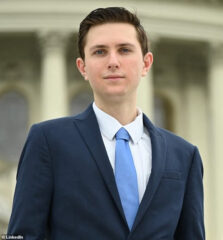By Edmond Y. Azadian
France’s President Nicolas Sarkozy is a different kind of political animal, capable of any and every controversial political move. During his tenure as his country’s interior minister, his harsh treatment of France’s Muslim immigrant population was severely criticized, yet it helped to boost his popularity and catapult him to the office of president. Equally controversial was his policy of packing up the Roma people and shipping them to their countries of origin.
Less than a year ago, Mr. Sarkozy was offering warm accolades to Libya’s Muammar Gaddafi and today he is on the forefront of the NATO bombing raids trying to unseat his erstwhile friend. Last week he was on another mission to the Caucasus. He was on a whirlwind tour of Armenia, Georgia and Azerbaijan. His longest stay in the region was in Armenia, perhaps thanks to the diplomatic skills of Foreign Minister Eduard Nalbandian and Charles Aznavour, the latter accompanying him on the trip. That, in itself, was a message to the region.
We have to remember that following the war between Russia and Georgia, he was designated by the West to rush to Tbilisi in support of the Georgian position.
He also conducted shuttle diplomacy between Moscow and Tbilisi to salvage whatever was possible in that relationship. Of course, Abkhazia and South Ossetia could not be reintegrated back into the Georgian territory, but the latter was solidly won for the West. Today, the West has a strong strategic position in the Caucasus thanks to Saakashvili.
Incidentally, Armenians have every reason to complain about the Georgian government’s policy with regard to the minorities, but the West has touted it as a showcase of economic recovery for the rest of the region to emulate if they wish prosperity. And contrary to all adverse publicity, Mikheil Saakashvili has apparently stemmed corruption overnight.







